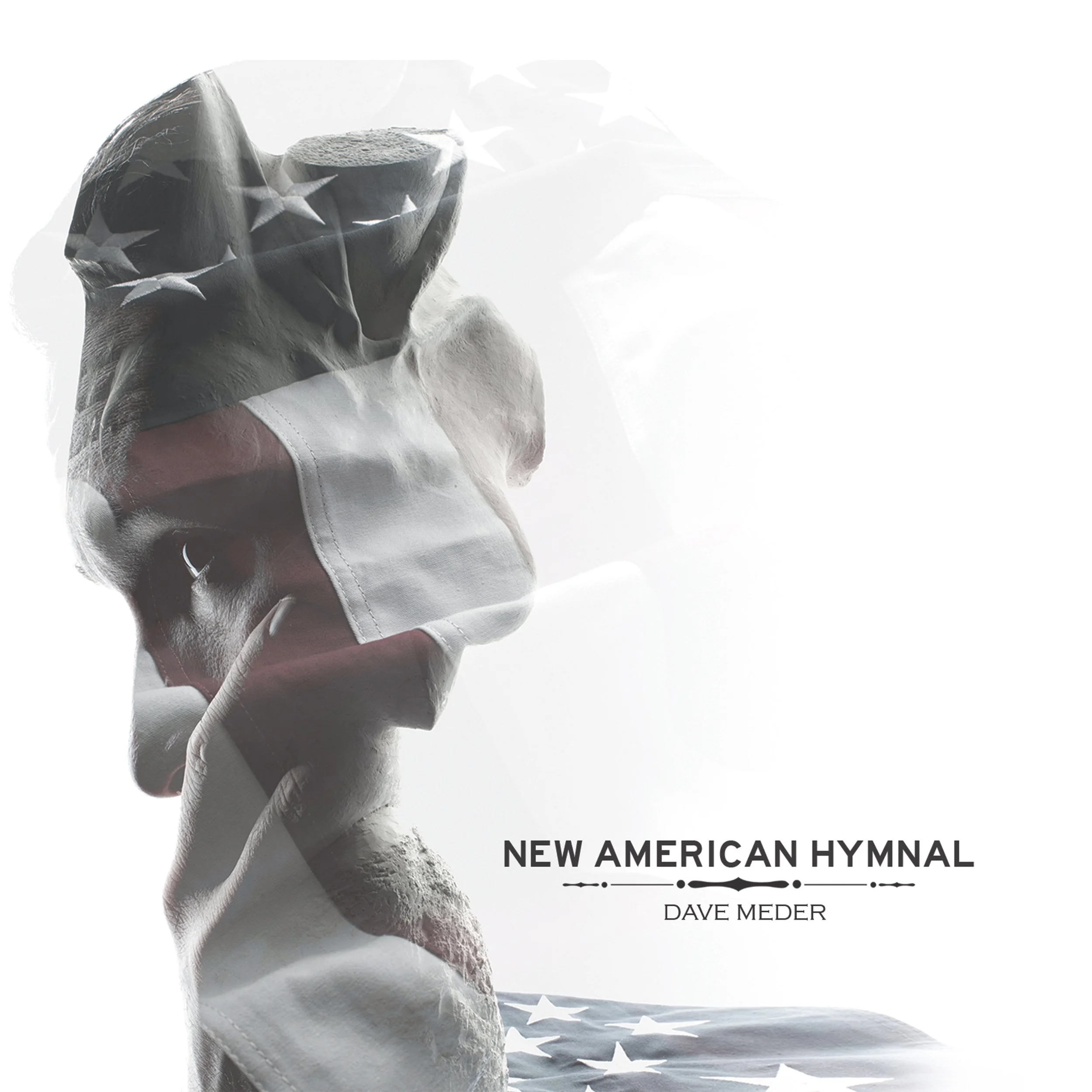Dave Meder | New American Hymnal | Album
New American Hymnal, pianist/composer Dave Meder’s third album as a leader, his first full album with this new quartet configuration featuring the great Philip Dizack on trumpet, first call bassist Marty Jaffe, versatile and in-demand drummer Michael Piolet & vocalist Isabel Crespo Pardo (on track 7), is a collection of worship songs, not in a religious sense, but rather for the American civic and cultural experiment. Available everywhere, September 8, 2023, on Outside In Music.
The enduring power of religion, faith, and hymns is that they bind us to a unifying creed: a set of principles that form the value system for even the most secular of cultures. Perhaps in no other country does religion remain such a curious force than in the United States. Despite our theoretically secular founding, several recent judicial rulings have been driven by Judeo-Christian tenets. Meder elaborates, “it's not a new phenomenon: political-cultural issues have been a steady unifying force for fundamentalists since the rise of the Moral Majority in the 1980s, and the broader idea of mobilizing religion for political ends is a centuries-old strategy. Yet, on issues of existential and once-in-a-generation importance, such as the threat of climate change, this same American religious establishment is unable, or unwilling, to mount the same kind of organized political effort as it does on polarizing social issues. Why? Who decides which issues make it onto the battle lines of a religious or political creed, and which do not? Who has the privilege of setting the dominant interpretation of a religious text?”
Rather than attempt to sort out theological nuances or attempt to advocate for “who is right,” New American Hymnal instead tries to establish a foil: a secular creed based on the idea that certain American values are simply infallible - regardless of how they are interpreted or taught by any given religious group. Meder explains, “there are injustices in modern American society that are intrinsically real, and no faith should be able to convince us otherwise based on their chosen religious text. We have real and existential problems ahead of us…problems that affect all of us…problems that exist outside of any religious worldview…problems that will require us to put dogmatic ideals aside and deal with each other in an intelligent manner…”
“Ultimately, New American Hymnal is a chance, in my small corner, to join others who are taking a fresh look at what constitutes the creed of American culture, independent of any religion. Nevertheless, I use the metaphor of a hymnal to guide the structure of this work: a nod to the names of existing church worship collections like the New English Hymnal or New Harmonia Sacra. I think of each work as a figurative meditation on an aspect of American civil life. Some works worship the good, some lament the bad, and others act as calls to action. But much like in a literal hymnal, these songs combine their various affects and messages into a unifying set of ideals,” states Meder.
The idea of the hymnal resonates with Meder’s background as a child who grew up playing piano in a Southern Baptist church. He was often brought to tears by the hymns, and they remain one of the most foundational aspects of his musical language. He says, “when doctrine failed to convince me, the music would sustain me in the faith for some portion of my life. In college, as a political science major, I became interested in the curious relationships between American religion and politics. My professional musical life, which moved me from the South to New York City and now back to Texas, has allowed me to be a part of diverse congregations that interpret the same text in strikingly different political and social directions.”
In response, Meder’s “hymns” tackle a variety of modern American themes. The folksy overture “modern gothic” is an fresh take on classic Americana (referencing the similarly named Norman Rockwell painting). Other works use the language of the church but deal in secular subjects. In “chant (our collective inaction)”, Meder conveys his generation’s anger at the lack of political mobilization on mitigating climate change. In contrast, “adoration (of all that is good)” is an ode to multiracial democracy and the progress made in racial reconciliation since the Civil Rights Era. Along the way, Meder uplifts and celebrates American figures, with a stunning setting of an Emily Dickinson poem (sung by up-and-coming avant-garde vocalist Isabel Crespo Pardo), and a reflective chorale incorporating audio from Robert F. Kennedy’s famous 1968 speech following the assassination of Martin Luther King Jr.
More on pianist/composer Dave Meder: Pianist, composer, and educator Dave Meder is one of the prominent artists of his generation, known for a broad musical palette and interdisciplinary approach recognized in the Thelonious Monk International Jazz Piano Competition, the American Pianists Awards, and the Chamber Music America New Jazz Works commissioning program. Beyond the accolades, his defining aesthetic is a strikingly postmodern sense of stylistic adventure, incorporating what All About Jazz describes as “a vibrant hybrid of the whole American spectrum.” His first album Passage was counted among the top five jazz debuts in the Ottawa Citizen and was included in the annual “Favorite Jazz Albums” list from All Music Guide, noted for its skillful balancing of “post-bop harmonies with soulful gospel warmth and contemporary classical sophistication.” His recent release Unamuno Songs and Stories uses the works of Spanish Civil War-era philosopher Miguel de Unamuno to respond to sociopolitical turmoil in the United States. Meder has headlined stages or conducted educational residencies at Jazz at Lincoln Center, The Kennedy Center, as well as internationally in Beijing, Tokyo, Sao Paulo, and most recently Egypt as a US Fulbright Scholar. Dave is a Yamaha Artist and a professor at University of North Texas.
Personnel:
Dave Meder - Piano, Philip Dizack - Trumpet, Marty Jaffe - Bass, Michael Piolet - Drums, Isabel Crespo Pardo - Vocals.












